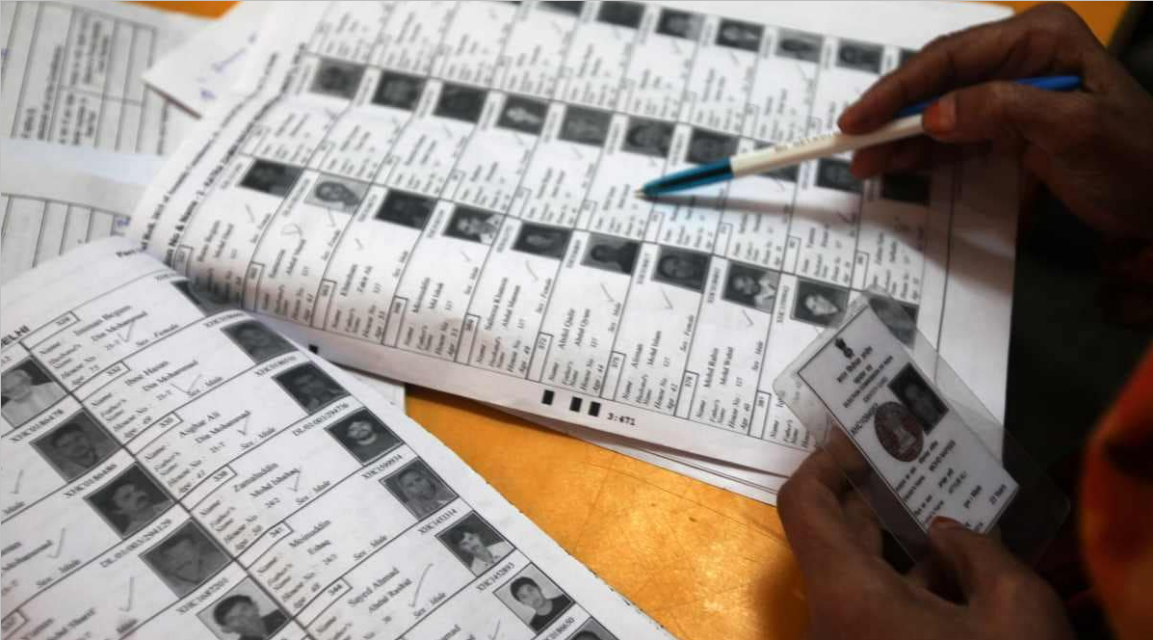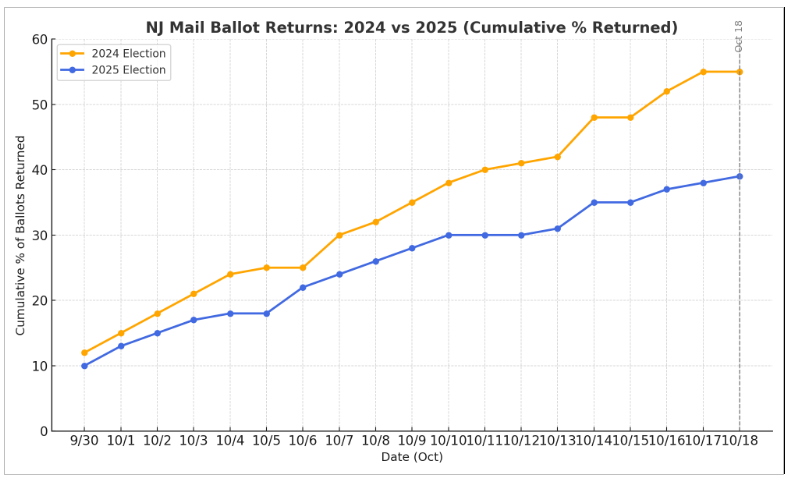Overview of the Case:
The lawsuit brought by Bethany Murranko, Mark Murranko, and others (collectively, the plaintiffs) against the Mercer County Board of Elections and individual board members, as well as the Superintendent of Elections, arose from claims of mismanagement during the 2022 and 2023 general elections. The plaintiffs alleged a series of failures by the election officials, which they argued led to voter disenfranchisement, violations of both state and federal election laws, and infringements on their civil rights.
The lawsuit focuses on equipment malfunctions, improper use of provisional ballots, and alleged failures by poll workers and election officials, all of which the plaintiffs claim undermined the integrity of the elections and violated their constitutional rights.
The Complaint:
The plaintiffs filed a complaint on February 14, 2024, containing three primary counts:
- State Civil Rights Violations (Count 1): The plaintiffs allege violations of the New Jersey Civil Rights Act (NJCRA) (N.J.S.A. 10:6-2) and assert that their constitutional right to vote, as protected by the New Jersey Constitution, was infringed upon. They claim that due to the mismanagement of the election, their votes were either improperly rejected or their voting process was compromised, resulting in a violation of their right to have their votes counted properly.
- Federal Civil Rights Violations (Count 2): The plaintiffs further claim that the defendants violated federal civil rights law under 42 U.S.C. § 1983. Specifically, they argue that the election officials’ actions or inactions deprived them of equal protection under the law, and that qualified voters were not treated equally, as many were forced to vote provisionally, and some votes were not counted at all. They contend that the improper handling of ballots and voting equipment effectively diluted their votes.
- Declaratory Judgment (Count 3): The plaintiffs also seek a declaratory judgment asserting that Mercer County’s handling of the election violated New Jersey’s Title 19 election laws. They allege that procedures regarding provisional ballots, chain of custody, and ballot counting were not followed, which compromised the integrity of the elections.
The plaintiffs claim that Dominion Voting Systems tabulators rejected ballots due to mismatched ballot ID codes, resulting in confusion and County officials’ misapplication of provisional ballot handling procedures when emergency ballots should have been used. They argue that poll workers were inadequately trained, which exacerbated the problems on election day. Furthermore, they allege that the Board of Elections failed to maintain the chain of custody for ballots and that discrepancies in reported vote counts were not addressed before certifying the election results.
The plaintiffs seek both injunctive relief to prevent future election issues and damages for the alleged civil rights violations that occurred during the 2022 and 2023 elections.
Defendants' Motion to Dismiss:
Before filing a formal answer to the complaint, the defendants, led by the Mercer County Board of Elections, moved to dismiss the case on June 17, 2024. In their motion, the defendants made several arguments:
- Sovereign Immunity: The defendants argued that they, as election officials and arms of the state, were immune from lawsuits under both the NJCRA and 42 U.S.C. § 1983. They contended that election oversight is a state function, and therefore, they should not be subject to civil liability for their actions in this role unless the state has explicitly waived sovereign immunity, which it had not.
- Qualified Immunity: The defendants also claimed they were protected by qualified immunity, which shields government officials from personal liability as long as their actions do not violate "clearly established" statutory or constitutional rights. They maintained that the alleged issues with the election were unforeseen and that they acted reasonably in response to the technical difficulties with voting equipment.
- Timeliness of the Complaint: The defendants contended that the plaintiffs’ lawsuit was time-barred under New Jersey election law (N.J.S.A. 19:29-1 to -14), which requires election-related challenges to be filed within 32 days after an election. Since the plaintiffs filed their lawsuit in February 2024—more than a year after the November 2022 election—the defendants argued that the complaint should be dismissed as untimely.
The defendants requested that the court dismiss the entire case with prejudice, meaning the plaintiffs would not be allowed to refile the complaint on the same grounds.
Court’s Ruling on the Motion to Dismiss:
On August 29, 2024, the Superior Court of New Jersey issued its decision on the defendants’ motion to dismiss. The court’s ruling addressed the key issues as follows:
- Sovereign Immunity: The court ruled that the Mercer County Board of Elections, as an entity performing state functions, was entitled to sovereign immunity from damages claims. As a result, the claims for monetary damages against the Board and the individual defendants in their official capacities were dismissed. However, the court allowed the plaintiffs to seek prospective injunctive relief—that is, they could pursue changes to future election processes, but they could not recover damages from the Board.
- Qualified Immunity for Individual Defendants: The court allowed the claims for personal liability to proceed against the individual defendants in their personal capacities. This means that although the defendants could later assert qualified immunity as a defense, the plaintiffs were permitted to move forward with their claims that the individual defendants personally violated their civil rights during the election process.
- Timeliness: The court rejected the defendants' argument regarding the timeliness of the lawsuit. It found that the plaintiffs were not directly contesting the election results but were instead alleging civil rights violations related to how the election was conducted. Therefore, the 32-day deadline for election challenges did not apply, and the case could proceed.
- Amendment of the Complaint: The court granted the plaintiffs 20 days to amend their complaint, allowing them to clarify or strengthen their claims in light of the court’s ruling.
Defendants’ Answer to the Complaint:
Following the court’s decision on the motion to dismiss, the defendants filed a formal answer to the complaint. In their answer, they generally denied the plaintiffs' allegations of election mishandling. They maintained that the election was conducted according to the law and that any issues encountered, such as the tabulator malfunctions, were addressed promptly and appropriately.
The defendants continued to assert several defenses, including:
- Sovereign and Qualified Immunity: Reiterating their arguments from the motion to dismiss, the defendants claimed they were immune from liability for their actions as public officials performing state-mandated functions.
- Lack of Standing: The defendants argued that the plaintiffs lacked standing to bring the lawsuit because they had not demonstrated any specific harm or personal injury resulting from the alleged election irregularities.
- Good Faith and Compliance: The defendants argued that they acted in good faith and in compliance with all relevant laws and procedures, and that any errors or technical issues that arose were promptly addressed without impacting the outcome of the election.
The defendants requested that the court dismiss the case in its entirety, maintaining their position that they did not violate any laws or rights during the election process.
Next Steps in the Case:
With the court having ruled on the motion to dismiss, the case is now proceeding to the discovery phase, during which both parties will gather evidence to support their claims. This phase will include:
- Depositions: The plaintiffs and defendants will have the opportunity to take depositions from key witnesses, including election officials and potentially poll workers, to investigate the claims of election mismanagement and civil rights violations. These depositions are crucial for establishing the facts and clarifying the roles of the individual defendants in the election process.
- Document Production: Both parties will exchange documents related to the administration of the 2022 and 2023 elections, including records of ballot handling, equipment testing, and communications among election officials.
- Expert Testimony: The plaintiffs may introduce expert testimony regarding election procedures, equipment functionality, and the impact of the alleged irregularities on the election outcome.
As the case moves forward, the court will consider the facts gathered during discovery and may eventually hold a trial to determine whether the plaintiffs' claims of civil rights violations and election mismanagement hold merit. The individual defendants may continue to argue that they are protected by qualified immunity, but this will be decided based on the specific facts of their actions during the election





